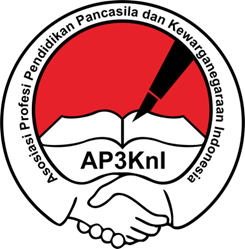Socio-Cultural Intervention As Disaster Mitigation In Indonesia
DOI: https://doi.org/10.26618/jed.v7i3.8179
Mitigation, Social Capital, Disaster
Abstract
The Republic of Indonesia needs a mitigation system due to considering how vulnerable the archipelago to disasters. Compiled from The National Disaster Management Authority (BNPB) data in 2021, Indonesia will have to deal with 1,441 natural disasters in the period from January to June. This situation gets worse because until now Covid-19 is still high in various corners of the country. Various efforts in the context of handling the disasters have encountered obstacles that could slow down the recovery of the community. Indonesia's disaster management is still absent in playing its role. Therefore, it is necessary to optimize various aspects, including social and cultural capital as an important force. Natural disaster mitigation needs to be done by basing the wealth of cultural heritage, traditions and local wisdom. In addition to saving budget, mitigation models that use social power like this are more responsive so that prevention and recovery can be carried out earlier. This study aims to analyze and identify socio- cultural intervention as a disaster mitigation. This study uses a qualitative method with an explanatory descriptive approach. The data collection was done by using observation, interview, and documentation techniques. The result of this study indicates that disaster management in Indonesia is still spontaneous and does not optimize mitigation interventions in social and cultural aspects such as social networks and local wisdom values. The socio-cultural intervention system is very realistic because local wisdom exists in every community in the archipelago. This is good for the community to respond to disaster problems.
References
Adi, H. P. (2011) Kondisi dan Konsep Penanggulangan Bencana Kekeringan di Jawa Tengah.
Buchari, R. A. (2020) ‘Manajemen Mitigasi Bencana dengan Kelembagaan Masyarakat di Daerah Rawan Bencana Kabupaten Garut Indonesia’, Sawala: Jurnal Pengabdian Masyarakat Pembangunan Sosial, Desa dan Masyarakat, 1(1), pp. 1–7.
Dolorosa, A. G. (2019) ‘Nilai Gotong Royong Di Indonesia Dewasa Ini’. INA-Rxiv.
Faturahman, B. (2020) ‘Analisis rencana strategis pemerintah kabupaten banyuwangi dalam penanggulangan bencana alam’, Publisia: Jurnal Ilmu Administrasi Publik, 5. doi: 10.26905/pjiap.v5i1.3607.
Haifani, A. M. (2018) ‘Manajemen Resiko Bencana Gempa Bumi (Studi Kasus Gempa Bumi Yogyakarta 27 Mei 2006)’, Seminar Nasional IV SDM Teknologi Nuklir.
Hengkelare, S. H., & Rogi, O. H. (2021) ‘Mitigasi Risiko Bencana Banjir di Manado.’, Spasial, 8(2), pp. 267–274.
Indonesia. Undang-Undang Nomor 24 Tahun 2007 tentang Penanggulangan Bencana. Sekretariat Negara. Jakarta.
Kurniawati, D. (2020) ‘Komunikasi Mitigasi Bencana sebagai Kewaspadaan Masyarakat Menghadapi Bencana.’, Jurnal Simbolika: Penelitian dan Pembelajaran Ilmu Komunikasi., 6(1), pp. 51–58.
Lawang, R. M. Z. (2005) Kapital Sosial Dalam Perspektif Sosiologi. 2nd edn. Depok: FISIP UI Press.
M. Arsjad, B. R. (2013) ‘Potensi Risiko Bencana Alam Longsor Terkait Cuaca Ekstrim di Kabupaten Ciamis, Jawa Barat. Jalan Raya Jakarta Bogor Km.46, Cibinang’, Jurnal Ilmiah Geomatika, 19, pp. 57–63.
Moleong, L. J. (2013) Metode Penelitian Kualitatif. Bandung: PT. Remaja Rosdakarya.
Pahleviannur, M. R. (2019) ‘Edukasi Sadar Bencana Melalui Sosialisasi Kebencanaan Sebagai Upaya Peningkatan Pengetahuan Siswa Terhadap Mitigasi Bencana’, Jurnal Pendidikan Ilmu Sosial, 29(1), pp. 49–55. doi: 10.23917/jpis.v29i1.8203.
Prasetyo, B. (2019) ‘Kearifan Lokal Sebagai Basis Mitigasi Bencana’, Peran Matematika, Sains & Teknologi dalam Kebencanaan, pp. 111–129.
Putnam, R. D. (1993) Double-Edged Diplomacy: International Bargaining and Domestic Politics. Edited by R. D. Putnam, P.
B. Evans, and H. K. Jacobson. Berkeley: University of California Press. Available at: http://www.ucpress.edu/book.php?isbn=9780 520076822.
Ritzer, G & Douglas, G. (2014) Teori Sosiologi Modern. Jakarta: Prenada Media.
Rusdi, M. I. W. 2016. Nilai Budaya Siri'na Pacce Dan Perilaku Korupsi. Malang: University of Muhammadiyah Malang.
Sabiq Manshur (2019) ‘Bersahabat dengan Bumi: Modal Simbolik dalam Mitigasi Bencana Alam’, Talenta Conference Series: Local Wisdom, Social, and Arts (LWSA), 2(1), pp. 1–9. doi: 10.32734/lwsa.v2i1.625.
Safitri, A., & Suharno, S. (2021) ‘Budaya Siri’Na Pacce dan Sipakatau dalam Interaksi Sosial Masyarakat Sulawesi Selatan.’, Jurnal Antropologi: Isu-Isu Sosial Budaya, 22(1), pp. 102–111.



